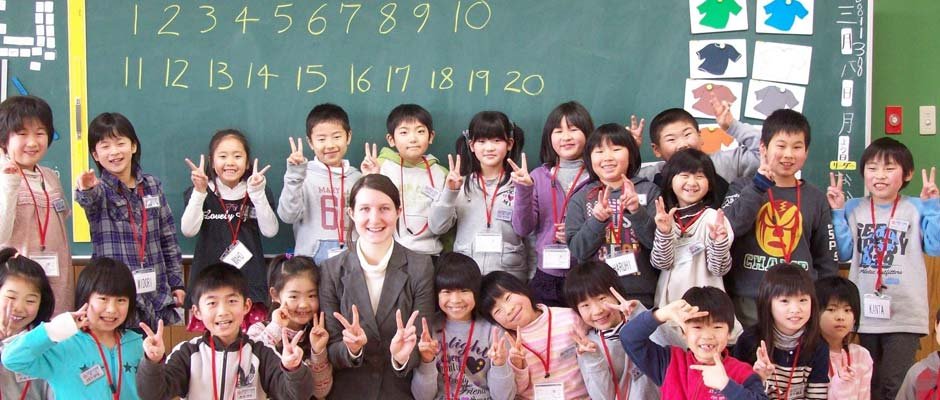If you’re looking to travel abroad to make money teaching English Language, Korea is one of the destinations to lock into. Not only is the English language in high demand in Korea, but it is also very profitable to English teachers.
According to the Korea Times, Korean students start learning English when they are 3.7 years old, on average. About 150,000 Korean students go abroad yearly to improve their English, and English education expenses amount to 15 trillion Korean won yearly.
You save Korean parents the massive cost of sending their kids abroad to study the English language when you travel to Korea to go teach English.
So, in this post, we’ll share with you all you need to get qualified to teach English in Korea. You can peek through the table of content to see what we’ve got in store for you.
Table of contents
- Why Choose to Teach English in Korea?
- Korea at a Glance: National Information
- Snappy Facts You Must Know
- Qualifications To Teach English in Korea
- What Are The Requirements Needed To Teach English in Korea?
- How to Teach English in Korea through EPIK
- What do I Need to Teach English in Korea at a private school?
- EPIK versus Hagwons
- Public School Job to Teach English in Korea
- Private School Job to Teach English in Korea
- How to Teach English in Korea from Home as a Part-Time Job
- Teaching Benefits in Korea
- OISE TEFL Certification to Teach English in Korea
- Bottom Line
- Recommendations
Why Choose to Teach English in Korea?
For quite some time, Korea has been perhaps the most famous place to teach English abroad. For ESL teachers, Korea resembles the goldilocks of all countries.
It brags about a perfect balance, excellent salary, reasonable visa requirements, and many advantages for first-time ESL teachers.
Korea is casually alluded to as the Land of the Morning Calm. Where else can you explore a secluded Buddhist monastery in the hills and be in the center of one of the world’s largest and most vibrant metropolises?
Besides, Korea is home to probably the best food on earth – a reality that Koreans will be glad to help you remember at each chance. (Be warned: You will develop a severe kimchi addiction when you are there!).
Teaching in South Korea provides a wonderful opportunity if you’re looking to push yourself outside of your comfort zone, save some money, and grow as a person and a professional.
Korea at a Glance: National Information
Below is South Korea at a glance:
- Capital – Seoul (South Korea)
- Language – Korean
- Populace – 50 million
- Currency – Won (KRW)
- Government – Unitary Presidential Constitutional Republic
- Atmosphere – Temperate, with cold winters and moist summers
Snappy Facts You Must Know
An organic product is an extravagance. A watermelon costs about $25. Tipping is not appreciated in Korea. Writing somebody’s name in red ink is viewed as a misfortune.
Cabs are shading-coded by quality. The rooftop of a conventional Korean home bends up like a grin. English is taught in grade schools from the age of 10.
READ ALSO: 7 Top Universities in South Korea in 2023
Qualifications To Teach English in Korea
If you need to be teaching English in Korea, apply for an E-2 (teaching) visa through your nearest Korean embassy or consulate.
To qualify for an E-2 visa, there are four minimum requirements that you should meet:
- Possess a bachelor’s degree/diploma from an accredited institution.
- Be a US, Canada, UK, Ireland, Australia, South Africa, or New Zealand resident. (Note: residents of India may likewise be qualified If they have a teacher’s permit in English. Again, If you are from Quebec, you may have to show that you are fluent in English, for example, by having a degree/certification from an English-speaking CEGEP or college).
- Pass a health and drug test.
- Have a clean national-level criminal record.
Remember that these are the base guidelines set down by the Korean immigration authorities to obtain a visa.
Your employer may have additional requirements. For instance, If you need to teach at a public school through EPIK, you should meet a couple of other essential criteria.
SEE ALSO: Best Programs to Get Your TEFL in South Africa
What Are The Requirements Needed To Teach English in Korea?
No one likes filling out paperwork, yet you must get your documents together if you need to teach in Korea.
To meet the above requirements, present these archives to your nearest Republic of Korea consulate or embassy when you apply for your E-4:
- A duplicate of your diploma/degree. If you are a non-Canadian or non-US resident, get your diploma/degree apostilled. Canadian and US applicants should get their diploma/degree ensured through a notary public.
- Sealed university/college transcript. (Please, don’t try to use unofficial copies you printed at home.)
- Passport photographs.
- Your original passport.
- Copy of your employment contract, which the school or recruiter will supply.
- National-level criminal background check. In Canada, this is acquired through the RCMP, while in the US, it is through the FBI. Non-Canadians should have their background check apostilled. Canadians need their C certified through a notary public.
How to Teach English in Korea through EPIK
When searching for an ESL teaching position in Korea, decide whether you need to teach at a public or Private school.
If you plan on teaching at a public school, you will probably do so through EPIK (English Program in Korea).
The application process for EPIK is more complicated and restrictive than it is for working in a private school. You can apply for EPIK either directly or through a recruiter.
You must understand that because EPIK is for public schools, teaching positions are only accessible at the start of the school semester. So all EPIK positions start in one or the other in February or August.
While applying for EPIK, you will need to provide all of the documentation outlined above for the E-2 visa.
Other Requirements for Teaching with EPIK
You should be TEFL/TESOL/CELTA certified, although this requirement is deferred if you hold either a bachelor’s or graduate degree in education.
You will also need to complete an interview. If EPIK doesn’t hire you, don’t lose hope!
Sometimes, public offices of education, like the Seoul Metropolitan Office of Education (SMOE), will post some available positions on their job boards.
While it’s commonly harder to get public school work by applying directly along these lines, it isn’t outlandish.
If this is your first rodeo, I encourage you to use a recruiter who will assist you in navigating your contract and guarantee there are no language boundaries between you and your school (Global Work and Travel, for example, is a great place to start).
But if you’ve done your research thoroughly, know Korea, or have experience teaching abroad, browsing through job listings directly can sometimes prove helpful.
What do I Need to Teach English in Korea at a private school?
Most ESL teachers in Korea teaching at private schools (called “Hagwons”). In major urban areas in Korea, it isn’t easy to stroll down any road for five minutes without passing one (or twelve!) Hagwons.
Korean parents place a great deal of significant worth in their kids’ education, particularly regarding learning English.
Subsequently, most Korean children have tried Hagwons, which can go from small schools with simply a tiny bunch of teachers to cross-country chains.
Each Hagwon is extraordinary and sets its application requirements. Similarly, as with any work, present your resume and complete a meeting (led via telephone or on the web).
While presenting your resume, remember that it is typical in Korea to incorporate a picture of yourself with your application.
While some Hagwons may cause you to meet extra requirements as long as you have all the documents you require for the E-2 visa.
If you’re not too picky, then you can mostly be teaching at a Hagwon someplace in Korea. More lucrative positions may cause you to have a specific measure of teaching experience or TEFL certification.
Hagwons in popular destinations, for example, Seoul or Jeju, may likewise be picky about who they recruit.
EPIK versus Hagwons
There is no clear advantage of teaching through EPIK instead of in a Hagwon. The hours will be comparable, although you are bound to be teaching during school hours through EPIK.
Still, in Hagwons you might be approached to do more morning and night shifts. The pay is likewise similar in both.
You will likewise require a degree to teach as an ESL educator in Korea, whether you work at a Hagwon or through EPIK.
Hagwon and EPIK additionally give comparative advantages, such as roundtrip airfare and basic facilities.
Hagwon jobs are more straightforward because there are so many Hagwons in Korea.
Whether this is your first time teaching ESL, you can find a job at a Hagwon in Seoul or another vast city. Hagwons also hire throughout the year.
The disadvantage to Hagwons is that the quality can shift significantly since they are private and so many of them.
If you’ve just researched ESL jobs to teach English in Korea, you may have run over many shocking stories about working at Hagwons on ESL discussion sheets.
You ought to take these stories with a massive grain of salt. While there are some bad apples in the Hagwon business, by far, most schools are expertly run and treat their teachers well.
Those upbeat teachers in both sectors have a great deal to bring to the table; choosing which ESL training position is appropriate for you can be overwhelming.
Teach Away can help you through the application process to help you find a position to teach English in Korea that is the best fit for you.
SEE ALSO: Teach English Online With no Degree; Requirements, Salary, and Schools
Public School Job to Teach English in Korea
Public schools in Korea offer an extraordinary workplace and the opportunity to have a legitimate Korean encounter with teachers teaching the English language in Korea.
Teachers employed to work at public schools turn out directly for the Korean Ministry of Education, teaching English to students and helping their Korean co-teachers.
The organized teaching plan allows teachers to enjoy nights and ends of the week off, giving teachers a lot of time to explore their surroundings. These job positions are ideal for individuals who are keen on teaching as a profession or gaining international experience.
Major admissions for public school jobs to teach English in Korea are in February/March and August/September. Keep reading to understand everything you need when applying (and getting employed) for the EPIK program.
What Are The Requirements For Teaching English In Korean Public Schools?
English teachers in Korea may be required to submit the following for some positions, especially those in public schools and universities:
- Proof of experience teaching full-time.
- TEFL certificate copy (at least 100 hours of class time, either Online TEFL Classes or In-Person TEFL Classes).
- A copy of your teaching certificate or license.
The EPIK program oversees English instruction in public schools in Korea. The English Program In Korea, or EPIK for short, is supported by the Korean Ministry of Education. After being approved into the program, you will be assigned jobs in public schools nationwide.
Private School Job to Teach English in Korea
Private schools in Korea, otherwise called Hagwons, offer the most attractive business employment packages for English teachers who need to teach English in Korea.
With flexible hours, competitive salaries, and benefits that incorporate free flights and facilities. Hagwons are a mainstream choice to Teach English in Korea in Korea.
Private schools are organizations, and all things considered, have longer working hours. For teachers, this implies an open door for extra time.
Hagwon ESL jobs are ideal for applicants hoping to save cash and work in an organized environment. Teach Away offers jobs at the best public schools in Korea all year.
RELATED POST: Best Teaching Abroad Jobs in China | 2023
How to Teach English in Korea from Home as a Part-Time Job
Teaching English online to students in Korea can be a great part-time job opportunity. Here are a few steps you can take to get started:
Meet the qualifications
To teach English in Korea, you typically need a native English speaker and a bachelor’s degree. You may also need a teaching certificate, such as a TEFL (Teaching English as a Foreign Language) or TESOL (Teaching English to Speakers of Other Languages) certificate.
Find a job
Various online platforms, such as VIPKid, DaDa, and Gogokid, connect native English speakers with students in Korea who want to learn English. These companies usually require a bachelor’s degree and a TEFL certificate. You can also check job boards, classifieds, and professional social media like LinkedIn for such openings.
Prepare your teaching materials
Many online teaching platforms provide lesson plans and materials, but having your resources can also be helpful. This can include flashcards, worksheets, and games to help engage your students and make the lesson more interactive.
Create a suitable teaching environment
Make sure you have a quiet, well-lit room with a stable internet connection. You’ll also need a headset with a microphone and a webcam. This will ensure smooth and clear audio and video quality during your class.
Be punctual and professional
As with any job, it’s essential to be punctual, reliable, and professional when teaching English online to students in Korea. This will help you establish a good reputation and secure future job opportunities.
Keep learning and developing
Teaching English is an ongoing learning process; there are always new ways to improve your teaching skills and strategies. Take the time to read articles, attend webinars, and participate in online discussion groups related to teaching English online.
Interest in online English teaching is exploding among students in Korea. Here are the benefits you stand to gain.
Teaching Benefits in Korea
| Basic Benefits | Public School Jobs in Korea | Private School Jobs in Korea |
| Monthly Salary | 1.8-2.0 million KRW–first-year teachers. 2.0-2.1 million KRW–first-year teachers | 2.0-2.1 million KRW – first-year teachers 2.1-3.0 million KRW – experienced teachers |
| Working Hours | 08:30-16:30 Monday-Friday | 09:00-18:00 – Kindergarten-Elementary 15:00-22:00 – Elementary-High School Evening & Weekend shifts |
| Teaching Hours | 22-24 hours/week | 30 hours/week |
| Vacation | 18 days and 13-15 national holidays **taken during school holidays | 7-10 days and 13-15 national holidays **taken when mandated by the school |
| Foreign Teachers | 1 foreign teacher/school | 2-15 foreign teachers/school |
| Class Size | 25-30 students/class | 10-15 students/class |
| Accommodation | Furnished single-occupancy apartment | Furnished single-occupancy apartment |
| Airfare | Round-trip airfare provided | Round-trip airfare provided |
| Bonuses | 50% Health Insurance, 1-month severance pay, Rural placement bonuses | 50% Health Insurance, 1-month severance pay |
| Locations | Major cities & rural areas (Rural placements are easier to obtain) | Major cities & rural areas |
| Start Dates | February/March-August/September | Monthly |
OISE TEFL Certification to Teach English in Korea
Many schools in Korea expect teachers to have a Foreign Language confirmation to teach English in Korea.
An OISE TEFL affirmation from the OISE University of Toronto’s Faculty of Education can assist you with turning you into a significant candidate for top jobs teaching English in Korea.
FAQs On Teaching English In Korea
Different types of English teaching jobs are available in Korea, such as teaching in public or private schools, teaching in language institutes, or teaching business English to professionals. Additionally, there are also opportunities to teach English online to Korean students.
First-time teachers with initiatives like EPIK, in South Korea’s public schools often make a monthly salary of 1.5 to 3 million won ($1,850 – $2,650 USD). In private schools (Hagwons), English teachers earn between 1.9 and 2.4 million won ($1,600 and $2,000 USD) per month. The majority of public and private colleges offer free housing and airfare reimbursements.
Many schools and institutions in Korea provide teachers with housing or a housing allowance. Additionally, most jobs will provide health insurance. However, it is best to check with the specific school or institution to see the benefits offered.
English teachers are in demand in South Korea, making it a top destination for aspiring educators.
Bottom Line
Teaching English in Korea is not for lazy people. As popular as Hagwons are in accepting English teachers, and as large as they are, they are still highly competitive schools. You may find that they have a short tolerance for English teachers who don’t meet up to expectations.
So, while you prepare to put your resources into the investment of traveling abroad to teach English in Korea, make sure that you have worked on your work ethic and are even prepared to handle more than one teaching job in Korea.








